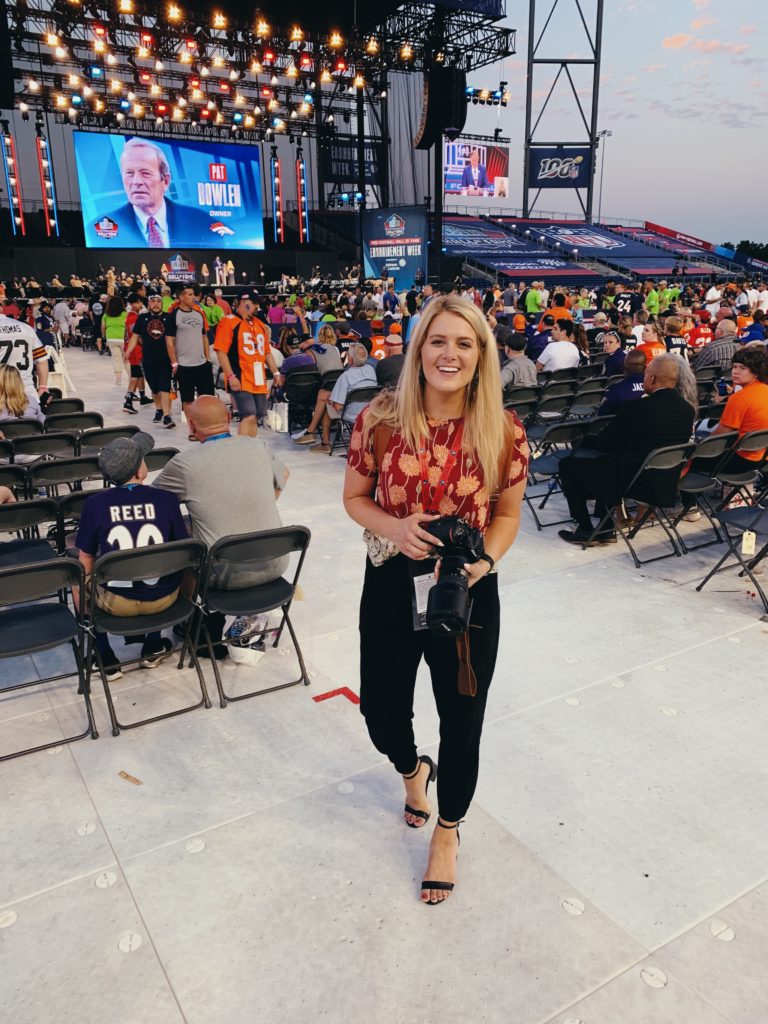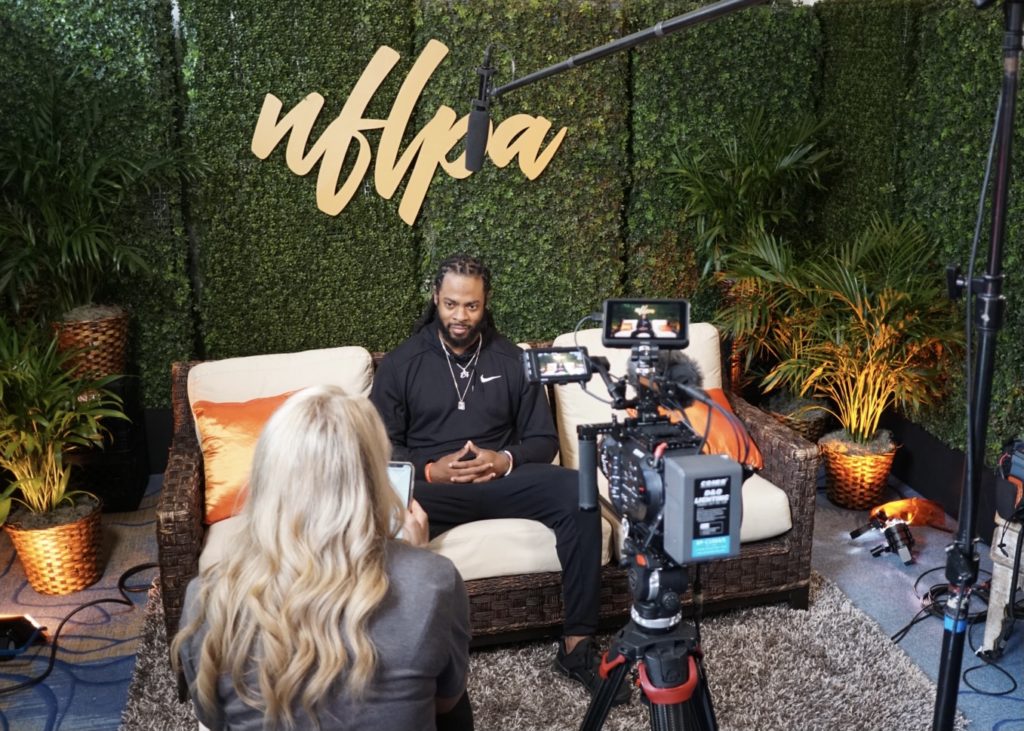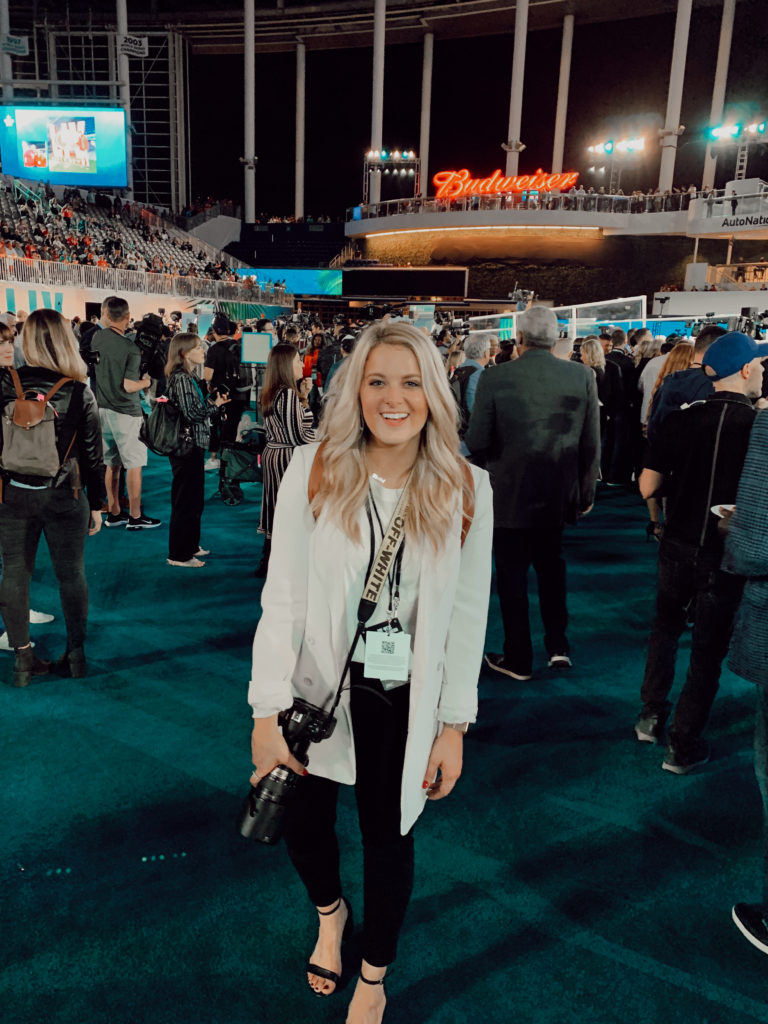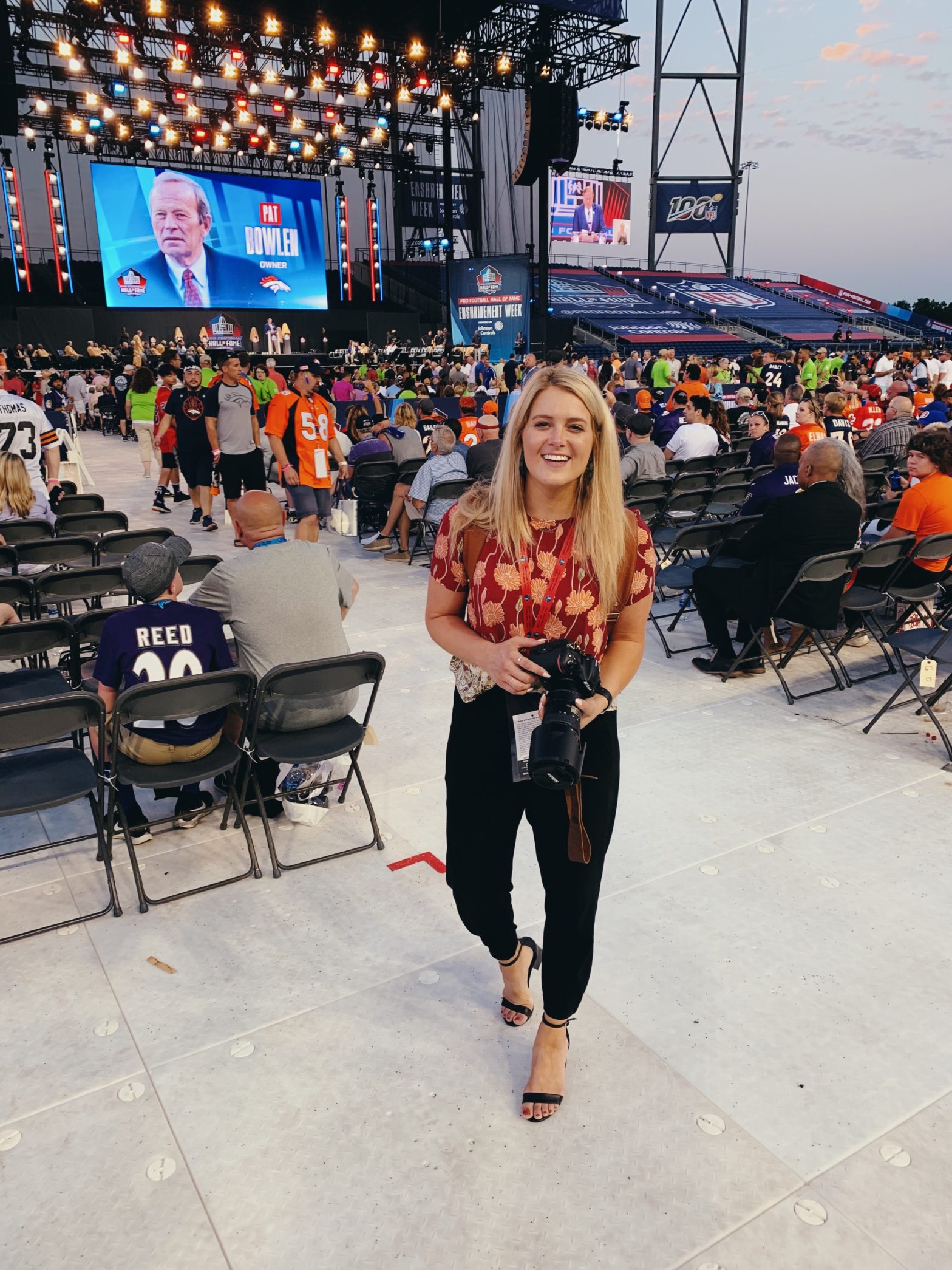Kasidee Karsten ’13 took her English degree into the social media realm, working for the past few years as Social Media and Content Manager for the National Football League Players Association. She shares with us her insights on how her English courses at Hope led to her success.

What are you up to now?
I currently work for the NFL Players Association (NFLPA) as a Social Media & Content Manager. My job is to put together a communications strategy that includes social media, website content and email/text message campaigns to active NFL players. The NFLPA represents all active and former NFL players and collectively bargains over wages, working hours and benefits for NFL players. We also offer several programs for players like continuing education and tuition reimbursement, job shadows and externships, financial wellness, and mental health programs. It’s my job to get the word out about these programs to our player members so they know what’s available to them and what they can take advantage of while they’re in the league. I also work on crisis management for any important matters that relate to the NFL, whether that be healthy/safety, social justice, etc. All-in-all every single day is different, and that’s what I love about my job! Getting to support the best football players in the world isn’t bad either.
How did your Hope English education shape you?
At Hope, I was always pushed to think creatively and critically, two skills which are invaluable in my opinion. Learning to appreciate the way others view the world by reading their works has helped me to be able to understand my audience better and to make sure I’m communicating to them appropriately. Our world today is very focused on the quick-hit, flashy headlines, but can lack substance beyond that. Hope English gave me a solid foundation for writing pieces with substance and taught me how to find the stories worth telling.
What advice would you give to current English majors or students considering an English major?
One of my favorite things about English is that there are so many possibilities! Knowing how to effectively communicate, justify your thoughts and think critically are skills that will bode well in any career path. Whether it’s journalism, public relations, legal, advertising, brand strategy, etc. having an English degree is something that will allow you the versatility to find a path you really enjoy. It also helps you stand out from a crowd when it comes to applying for jobs and interviewing because you’ve learned to research, problem-solve and effectively communicate your skills. It seems standard to those of us who are naturally good writers and communicators, but there’s actually a huge lack of these skills in the professional world.

If you could teach any English class, what would be the title?
Either “How to Master Your Audience” or “Social Media DTR: Why It Should Only Be a Part of Your Communications Strategy.” A lot of the work I’ve done over the past few years has been how to really understand the audience I’m speaking to versus slapping something on Twitter and hoping it sticks. It’s actually quite hard to learn how to tell a 20-something football player why they should care about personal finance! There’s a lot of thought and care that goes into creating a good social media strategy than most people think (see: Massive Corporate Social Media Horror Stories), and I love finding new ways to help campaigns land well.
Favorite book read recently or in college?
I recently read American Dirt and couldn’t put it down. These days I have a hard time finding books that I can really dig in and that keep my attention, and this one was so painful, intriguing and exciting at the same time.
Anything else to add? (writing process, advice, managing expectations for success, etc.)
It’s important to find a process that works for you! In college, I found myself comparing my writing process to others and the truth is that what works for me might not work for you. Some people dive right into their thoughts and they flow perfectly, others need outline after outline before getting something concrete down on paper. There’s no right or wrong way–the process is really what counts and what you learn the most from.



